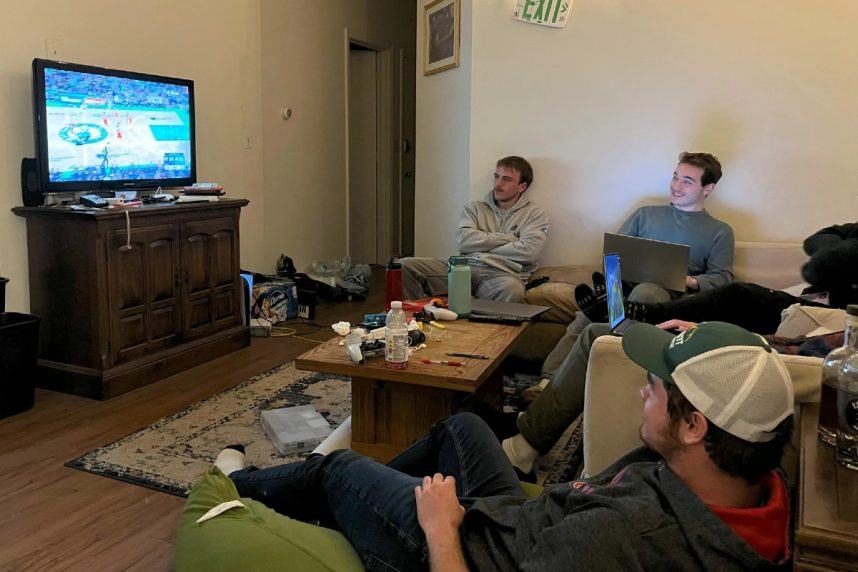Vermont Responsible Gaming Program Debuts, as Thousands Struggle With Betting Issues
Posted on: July 9, 2024, 04:12h.
Last updated on: July 9, 2024, 04:12h.
The Vermont Department of Mental Health last week launched its website dedicated to helping those afflicted with gambling disorders and addictions.

Gambling in the Green Mountain State remains relatively limited, as there are no commercial or tribal casinos, pari-mutuel wagering, or iGaming. However, Vermont does have a lottery, and in January, online sports betting began with three operators — DraftKings, FanDuel, and Fanatics.
Online sports wagering officially began on Jan. 11. While Vermont’s 2023 sports betting bill allowed for up to six operators, only the three mentioned applied in the state that’s home to less than 700K people, ranking it the second-least most populated state in front of only Wyoming.
Vermont’s sports betting industry is regulated by the Vermont Department of Liquor and Lottery.
Problem Gaming Resource
The Vermont Department of Mental Health has published a webpage titled, “Problem Gambling Resources.” The website offers a gambling helpline — 1-800-522-4700 (1-800-GAMBER) — that provides immediate, around-the-clock support and referrals for in-state therapy.
The website additionally educates consumers about the warning signs of gambling problems and links to support communities like GamTalk, a 24/7 moderated online peer support forum where people who have battled gambling addictions come together.
Vermont’s Mental Health Department said the expansion of gaming has resulted in an uptick in gambling disorders among state residents. The agency estimates 11,600 people are struggling with gambling addiction, whether they know it or not.
We knew that when online sports betting went live that we would have a rise in individuals who were at least at risk for problem gambling or gambling addiction,” said Dr. Kelley Klein, the medical director of the state Mental Health Department.
Klein believes the state’s toll-free problem gambling helpline and online support communities will greatly help those seeking relief.
Online sports betting is on our phones, so if somebody is very linked to that and feels comfortable just chatting with someone, this provides that outlet to them,” Klein continued. “They can even just say, ‘I don’t know if I have a problem but I’m starting to notice some things. Can you walk me through it?'”
Vermont’s Department of Mental Health is offering free training sessions for the public to better understand gambling addiction signs and how to help combat it, whether it be self-exclusion or assisting a family member or friend to seek treatment.
Self-Exclusion Options
Vermont is offering problem sports bettors or those who might think they’d be prone to participating more than they should to self-exclude themselves from the state’s three licensed online sportsbook operators. The state’s responsible gaming website allows state residents to prohibit themselves from accessing any state-regulated sportsbook for one year, three years, five years, or life.
A self-excluded person can only apply to have their sports betting privileges restored upon the completion of their originally intended excluded period. Self-exclusion is considered by many responsible gaming experts to be among the most effective responsible gaming strategies.
Since sports betting began in January, Vermont’s three online sportsbooks through May have collectively won a little more than $10 million from bettors.
The Vermont Department of Liquor and Lottery’s May sports wagering summary said 27,714 bettors made 554,263 bets totaling a little more than $12.6 million. That equates to an average bet of $22.75.
Related News Articles
Vermont Opens Sportsbook Bidding with Goal of Jan. 1 Launch
North Carolina Gaming Regulators Set Online Sports Betting Start
Most Popular
FTC: Casino Resort Fees Must Be Included in Upfront Hotel Rates
Genovese Capo Sentenced for Illegal Gambling on Long Island
NBA Referees Expose Sports Betting Abuse Following Steve Kerr Meltdown
UPDATE: Former Resorts World & MGM Grand Prez Loses Gaming License
Most Commented
-
UPDATE: Whiskey Pete’s Casino Near Las Vegas Closes
— December 20, 2024 — 31 Comments -
Caesars Virginia in Danville Now Accepting Hotel Room Reservations
— November 27, 2024 — 9 Comments -
UPDATE: Former Resorts World & MGM Grand Prez Loses Gaming License
— December 19, 2024 — 8 Comments -
FTC: Casino Resort Fees Must Be Included in Upfront Hotel Rates
— December 17, 2024 — 7 Comments
















No comments yet